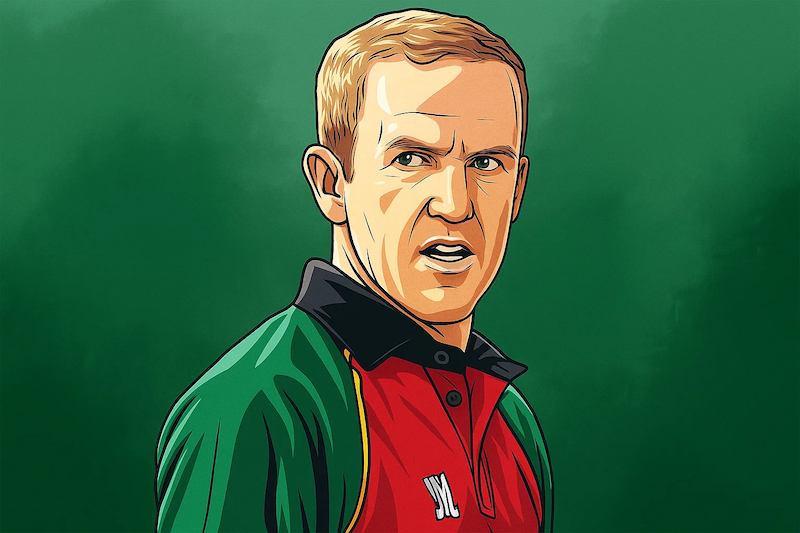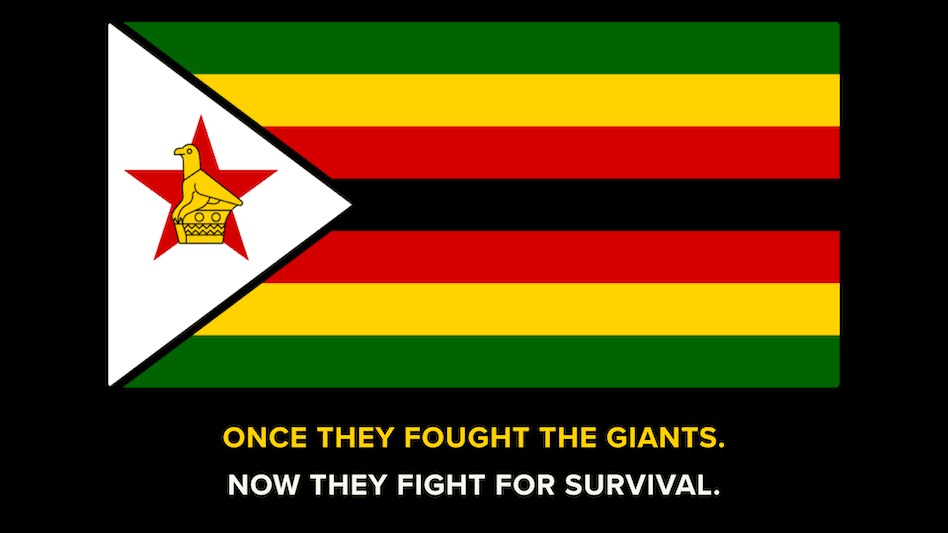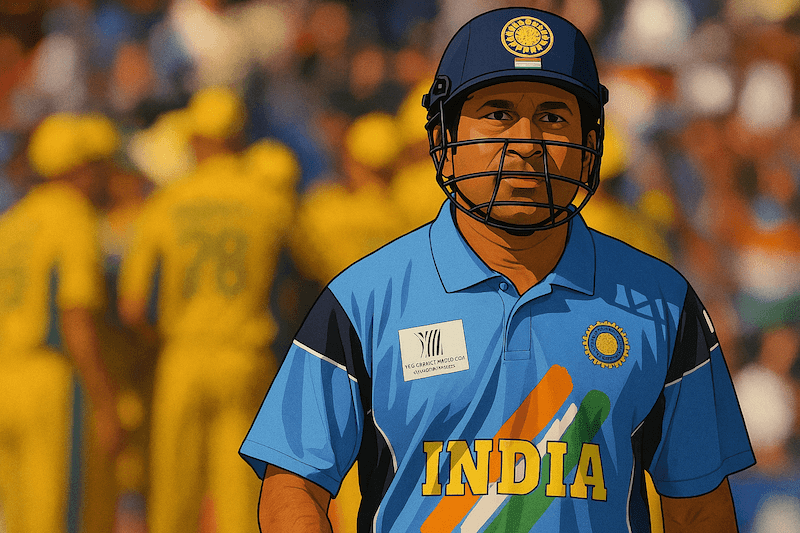
The 1999 Cricket World Cup was like a dream for Zimbabwe. They played with fearless energy and a touch of magic, toppling giants along the way. First, they shocked India by just three runs, then pulled off a huge upset against South Africa, the favourites of the tournament. For a small African nation, reaching the Super Six was more than an achievement, it was a story of courage and belief that won the hearts of cricket fans everywhere.
With Andy Flower’s calm leadership, Heath Streak’s fiery bowling, and Henry Olonga’s fearless energy, this was a team that didn’t just compete, they surprised everyone again and again. They played with a fighting spirit that made every match feel like a battle for pride.
But as the new century began, something started to break. The same team that once challenged the best slowly began to fall apart, not because they lost their talent, but because the system around them collapsed.
The day cricket lost its innocence
As the 2000s began, Zimbabwe was already in crisis. The government’s land reforms and economic troubles hurt every part of life, and cricket was no exception. Funding was cut, sponsors left, and players began to feel politics creeping into the game. Team selections became a matter of debate, with a new quota system forcing a set number of black players. Many senior cricketers argued that young talents like Hamilton Masakadza, Henry Olonga, and Mluleki Nkala were already proving themselves and did not need a rule to play.
Before the 2003 World Cup, tensions grew. England refused to play in Harare after players received death threats. Then came the moment that shook the world when Andy Flower and Henry Olonga wore black armbands to mourn the "death of democracy." It was one of the bravest acts ever seen on a cricket field, but it ended their careers. They were forced to leave the country under pressure, becoming symbols of courage as Zimbabwe cricket lost its two finest players and its soul.
When the stars walked away
By 2004, the cracks in Zimbabwe cricket had become too deep to hide. Captain Heath Streak was removed soon after he spoke to the board about the team’s problems. Many players felt that selections were no longer about talent but about race and politics. In protest, fifteen senior players, most of them white, went on strike. They later came to be known as the Rebel 15, a group that had carried the nation’s cricketing hopes for years.
The board refused to listen. Streak was replaced by the young and untested Tatenda Taibu, and the senior players were dismissed from the team. What followed was a disaster. A new team of mostly inexperienced youngsters was sent to play against Sri Lanka, where they were bowled out for just 35 runs, still the lowest score in ODI cricket.
The situation became so bad that the remaining players were not ready for international cricket. To avoid one-sided defeats, Zimbabwe Cricket agreed with the ICC to stop playing Tests for the rest of 2004. The break ended in early 2005, but by then Zimbabwe had lost not just its senior players but also its pride as a cricketing nation.
Money problems and mismanagement
Politics had already weakened Zimbabwe cricket, but money troubles made things worse. The board fell into heavy debt, and players often went months without pay. Many kept playing only for their love of the game. As the crisis grew, domestic tournaments were cancelled, and the system that built new players slowly collapsed.
The International Cricket Council tried to help with funds, but corruption and poor management made things worse. In 2019, the ICC temporarily suspended Zimbabwe Cricket for government interference, cutting off all money and banning the team from major events. For a nation once known for its fighting spirit, it was a painful fall from grace.
Explore More Stories

Andy Flower: The Craftsman Who Carried Zimbabwe
Andy Flower gave Zimbabwe cricket global respect with the bat and later shaped modern coaching with England and across franchises. His story blends excellence, courage, and lasting influence.

2005 Ashes: The Summer Cricket Became Theatre
The 2005 Ashes was more than just a cricket series. It was a rollercoaster of emotion, courage, and unforgettable moments that brought Test cricket back to life. England’s long wait finally ended, and the world watched history unfold.
The fading domestic game
When the senior players left and money ran out, Zimbabwe’s domestic cricket began to fall apart. Clubs struggled to keep their players, coaches were not paid, and young cricketers slowly disappeared. Those who showed promise had no proper tournaments or facilities to help them grow. Matches were few, grounds were in poor condition, and the passion that once drove the game started to fade.
Without a strong local system, Zimbabwe’s cricket comeback was out of reach. Cricket turned from a proud career into a struggle for survival. For a country that once produced players who fought the world’s best, the decline felt like watching a proud flame slowly burn out.
A story of heartbreak and hope
Zimbabwe’s fall was never just about cricket. It reflected a nation broken by politics, greed, and instability. The players who once gave everything for their country were let down by a system that stopped valuing them. It is hard to believe that the same team which narrowly missed a semi-final spot in 1999 failed to even qualify for the 2019 and 2023 World Cups. That fall from grace shows how deep the scars really are.
Yet, the love for the game still lives on. Children still play in dusty grounds, dreaming to be the next Flower or Streak. The passion remains, even if the structure does not. The road back will be long, but the spirit of 1999 still lives on — a reminder that Zimbabwe once dared to dream, and one day, it might rise again.





